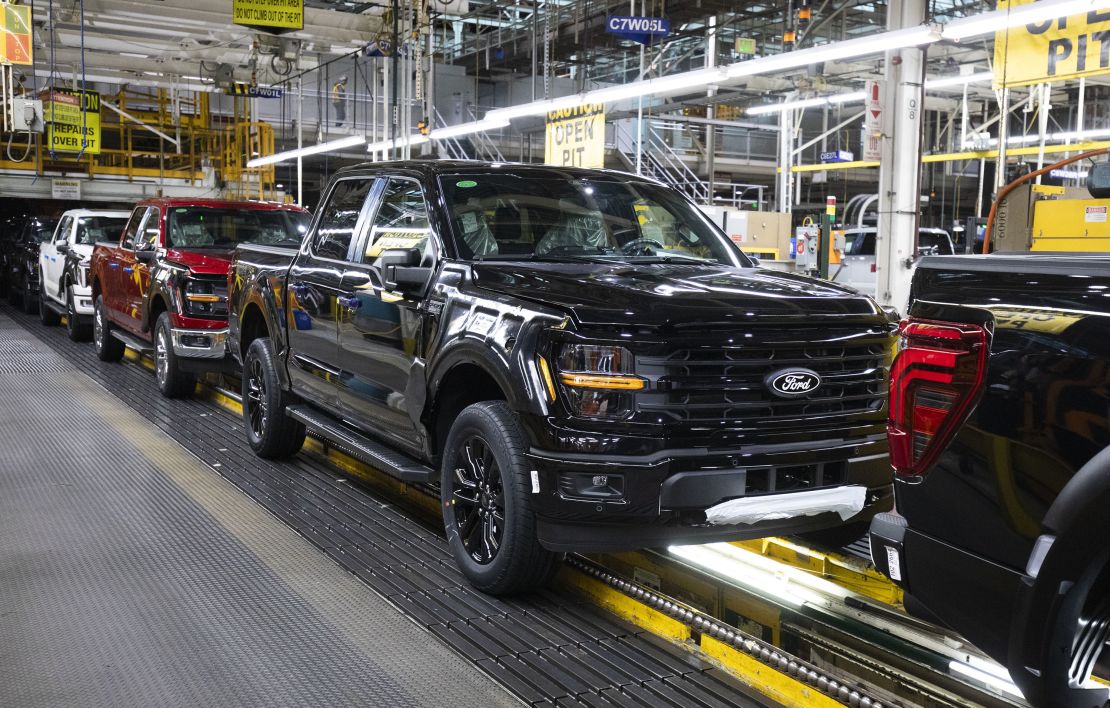Walmart, Ford and other companies are making changes to their diversity, equity, and inclusion (DEI) policies in response to online pressure, legal threats and customers opposed to the initiatives.
But activists are overstating the surface-level changes many companies are making to get rid of the heat, a CNN review of company policies and interviews with consultants and DEI proponents found. DEI, while under harsh scrutiny from critics who say it’s “reverse discrimination,” is alive and well in corporate America.
Nearly all the largest companies in America still say they are committed to promoting DEI. Few companies have scrapped their DEI efforts entirely, and only a small number have made any changes at all. The Heritage Foundation, a conservative think tank that opposes DEI, found last month that 486 of the Fortune 500 companies still have a statement or corporate commitment to DEI on their websites.
There’s no single definition of DEI, but it’s generally a mix of employee training, employee resource networks and recruiting practices to advance representation of people of different races, genders and classes, people with disabilities, veterans and others.
Just because a company has a DEI statement on their website doesn’t mean they’re doing anything, and it’s unclear how these programs have been working or how effective they might be. But companies are still working to hire and promote a wider pool of candidates than they did only a few years ago, experts say. And businesses still believe that extending their recruiting efforts, talent retention and customer acquisition strategies to underrepresented groups is good for their bottom lines.
“DEI isn’t going away. It’s just changing,” said J. Danielle Carr, the chief officer of inclusion at Lowenstein Sandler and president of the Association of Law Firm Diversity Professionals. The organization found that just 14 of the Fortune 500 companies made any public changes to their DEI teams or programs this year.
“The modifications that these companies have incorporated were not major overhauls of the work, and the commitment to focusing on the core components of DEI work remained intact,” Carr said.
Business impact of DEI
Instead of eliminating DEI policies, corporate America is changing its language.
Some companies are modifying terminology from “DEI” to “inclusion” or “belonging.” President-elect Donald Trump’s Justice Department is preparing to try to dismantle DEI policies at public schools, government agencies and other public institutions, but it may be limited in its ability to do so at private businesses.
Companies are also advertising their efforts less prominently than they were in 2020 and 2021.
The most significant change most companies appear to be making is ending participation in the Corporate Equality Index, an annual survey ranking companies according to their LGBTQ policies by the Human Rights Campaign, an LGBTQ advocacy group.
But that doesn’t necessarily mean it’s the end for these programs. And that’s likely because DEI policies, fundamentally, make money.

DEI initiatives have been shown to boost profits, reduce employee attrition and increase employee motivation, according to Boston Consulting Group research based on data from more than 27,000 employees in 16 countries. McKinsey found that companies with greater diversity on their boards of directors are more likely to outperform financially.
“We hear that most companies continue with DEI programs. They are just going to be less vocal about it. They don’t want to attract someone like Robby Starbuck,” said Kai Liekefett, co-chair of the shareholder activism and corporate defense practice at Sidley Austin, referring to one of the activists leading the anti-DEI campaigns.
“I’m not sure the substance will change all that much,” he said. “There is a widely held belief that DEI programs are valuable.”
Responding to pressure
Starbuck is riding a wave of right-wing hostility to DEI programs and corporate advocacy on issues like climate change and LGBTQ rights.
He has harnessed energy on the right to target specific brands popular with politically conservative customers — Harley-Davidson, Tractor Supply Co. and John Deere — and relentlessly drawn attention online to their past publicly stated policies.
“Any movement to transformative change begins with momentum and we clearly have the momentum,” Starbuck told CNN over text message. “I’d describe this current period as the beginning of the end for DEI and wokeness.”
He’s racked up some notable wins: Tractor Supply eliminated DEI and carbon emissions roles, and Molson Coors ended its supplier diversity goals.
But most of the companies that recently altered their DEI policies in the face of Starbuck’s pressure are making performative tweaks.
Take Ford, John Deere or Walmart.
In August, Ford ended participation in all external culture surveys, not just ones by the Human Rights Campaign. Ford reiterated that it doesn’t use hiring quotas — critics often say DEI policies are racial quotas — and said each of its employee resource groups were open to all employees.
Starbuck took credit, saying he was “in the middle of investigating woke policies @Ford but this morning Ford confirmed to me that they’re making changes.”

But CEO Jim Farley said in a statement at the time that Ford had spent the past year reviewing its policies. Ford remains committed to creating an “inclusive workspace and building a team that leverages diverse perspectives, backgrounds and thinking styles,” he said.
Ford told CNN that its policies to promote diversity and inclusion at the company remained in place. Ford also still has a chief DEI officer.
The changes at John Deere were also not as sweeping as Starbuck stated or as some outlets initally reported.
“Deere slashes diversity initiatives after backlash from conservative activist,” the Wall Street Journal reported. “John Deere backs away from diversity and inclusion efforts,” CNN said.
While Deere said it will no longer participate or support festivals and cultural events and will audit training materials and policies to make sure they don’t have “socially motivated messages,” Deere pledged support for advancing diversity at the company and said it would continue to track diversity.
“We fundamentally believe that a diverse workforce enables us to best meet our customers’ needs,” Deere said in a statement in July.
Deere did not respond to CNN’s requests for comment.
‘Overstate the changes’
Starbuck’s largest and most recent target was Walmart.
Walmart last month said it was ending racial equity training programs for staff and reviewing programs designed to increase supplier diversity. The company has worked to increase the number of suppliers that are at least 51% owned or managed by a woman, minority, veteran or someone who is LGBTQ in recent years.
The company is also reviewing all funding of Pride parades and other events and monitoring its online marketplace “to identify and remove any inappropriate sexual or transgender products marketed to children.”
Walmart also said it would not extend its Center for Racial Equity – a five-year, $100 million philanthropic commitment the company made in 2020 to address the root causes of gaps in outcomes of Black Americans in education, health, criminal justice and other areas.
“We are willing to change alongside our associates and customers who represent all of America,” Walmart said in a statement at the time. “We’ve been on a journey and know we aren’t perfect, but every decision comes from a place of wanting to foster a sense of belonging.”
“This is the biggest win yet for our movement to end wokeness in corporate America,” Starbuck said of the development on X.
But Ying McGuire, the CEO of the National Minority Supplier Development Council, told CNN that Walmart and other companies are still focused on expanding opportunities for underrepresented suppliers, including businesses owned by women, veterans and people with disabilities.
“It’s politics and semantics. The activists have strong incentives to overstate the changes,” she said.
McGuire does not worry that minority suppliers will now receive fewer opportunities from Walmart and other companies. It makes business sense for companies to seek out the widest array of suppliers and select the most competitive ones, she said.
“Walmart has had a very long history of supplier diversity. They have been a leader in this space. They have made significant strides in engaging minority-owned businesses,” she said. “Walmart is changing messaging and trying to be risk-averse.”








